-
Car Reviews
- All reviews
- Midsize SUVs
- Small cars
- Utes
- Small SUVs
- Large SUVs
- Large cars
- Sports SUVs
- Sports cars
- Vans
Latest reviews
- Car News
-
Car Comparisons
Latest comparisons
- Chasing Deals
With funky styling and an injection of some French flair, is the Nissan Juke the best-kept secret of the small SUV world?
In being given the task to review the Nissan Juke, a small SUV I’d never driven nor thought too much about, I started down a rabbit hole: what is a ‘Juke’ exactly?
According to the Nissan Juke’s Wikipedia page, “the name ‘juke’ means to ‘dance or change directions demonstrating agility’, and is also derived from the word ‘jukebox’”.
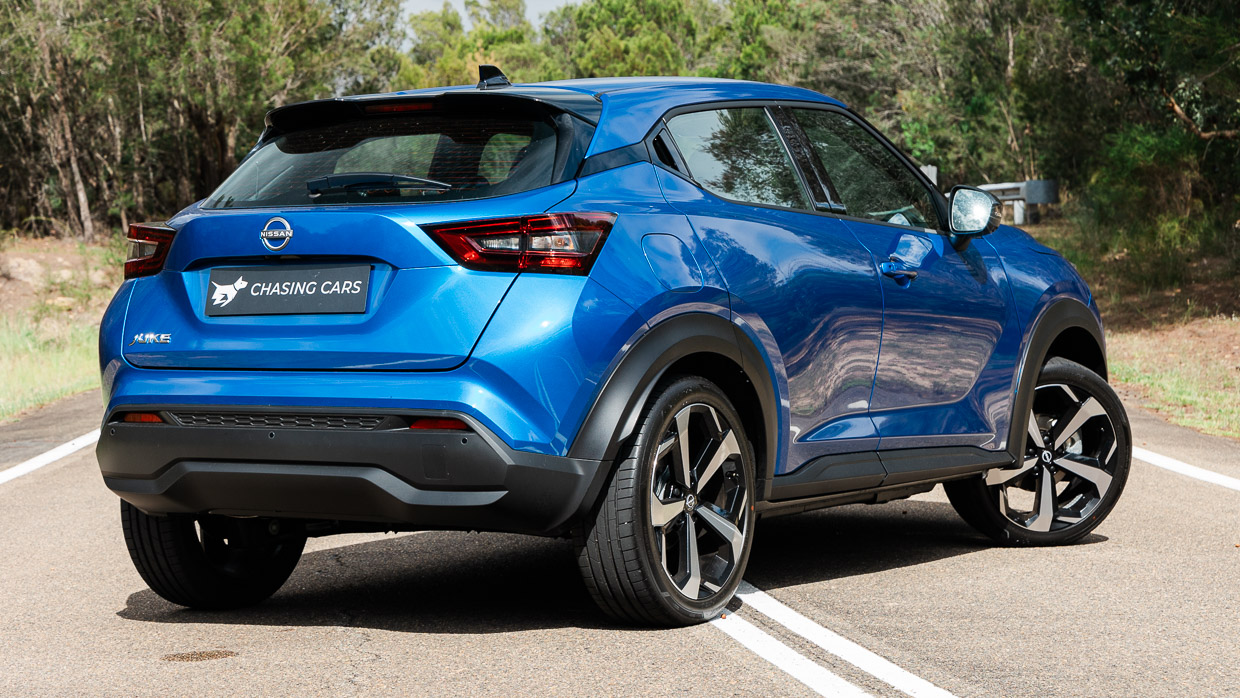
Okay, so I guess I should expect a pretty agile, sporty little thing? Perhaps with some youthful flair?
I thought I’d corroborate this with another source and ventured over to dictionary.com where I saw a slightly different take on ‘juke’: “to make a move intended to deceive an opponent”.
Interesting – could there be more to the Juke’s personality than meets the eye?
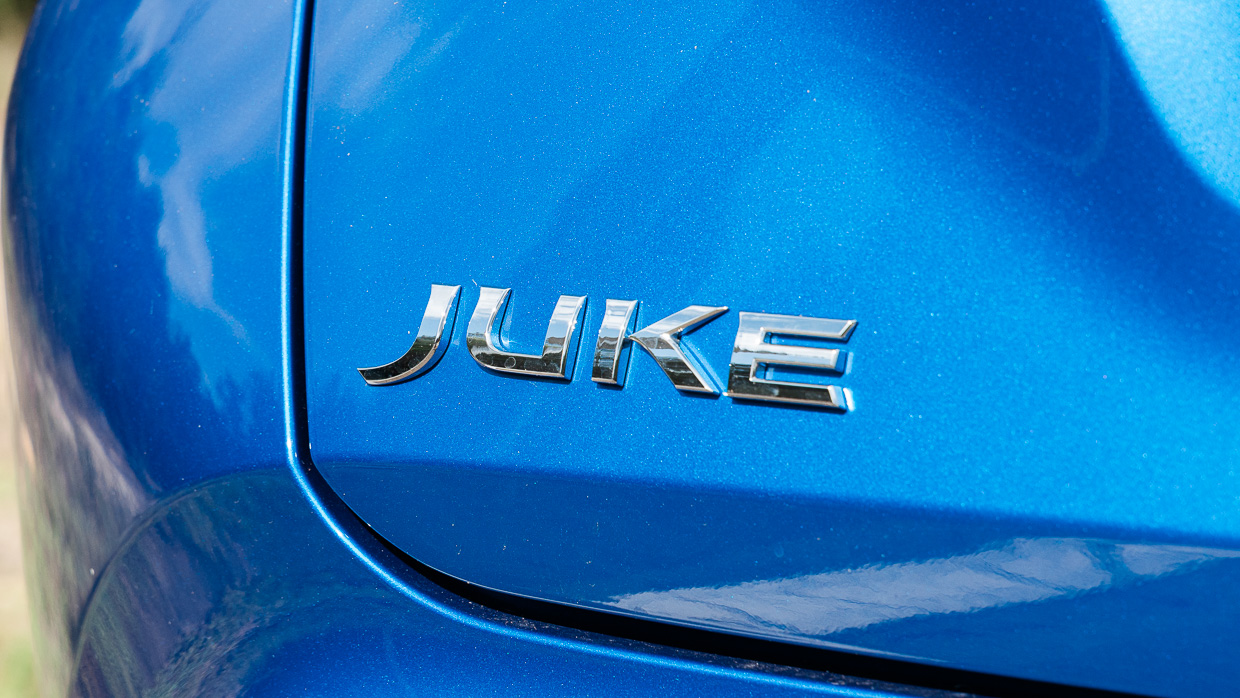
Certainly if the Juke were a dish at your favourite restaurant, it’d be an international fusion.
It’s built on the same Nissan-Renault CMF-B platform, which the Renault Clio and Captur also ride on, so perhaps we can also expect some je ne sais quoi from this small SUV?
Now in its second generation since 2019, the Juke is the entry point into the Nissan lineup in Australia.
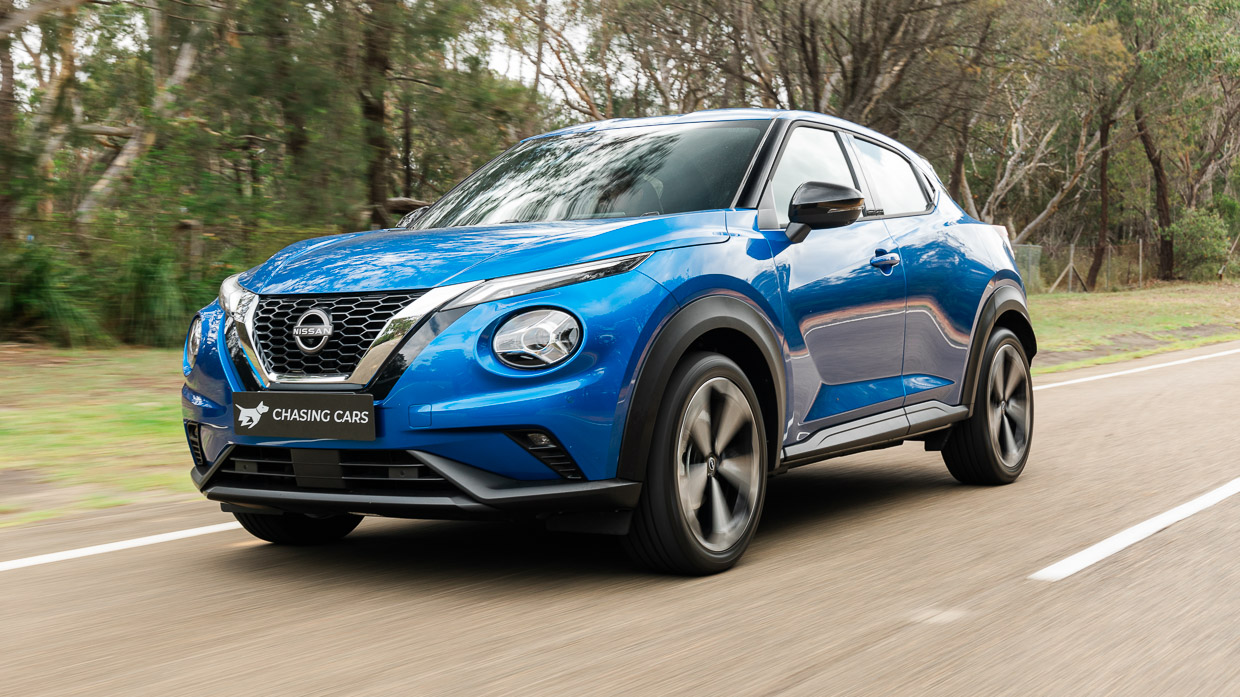
Billed as a small but funky little urban runabout, or as “on trend and off script” if you believe the marketing speak on Nissan’s website, you could feasibly see the Juke as a stylistic rival to the equally-edgy design-focused Toyota CH-R, although that car is technically classed in the segment above.
Though, while it certainly aims to cut through with its striking design, which debuted in 2019 and still looks good today, it hasn’t quite cut through in terms of sales in Australia.
In 2023, Nissan delivered 1256 Jukes for a 2.4 percent market share in the ‘light SUV’ segment. That compares to 15,776 sales for the segment-leading Mazda CX-3.
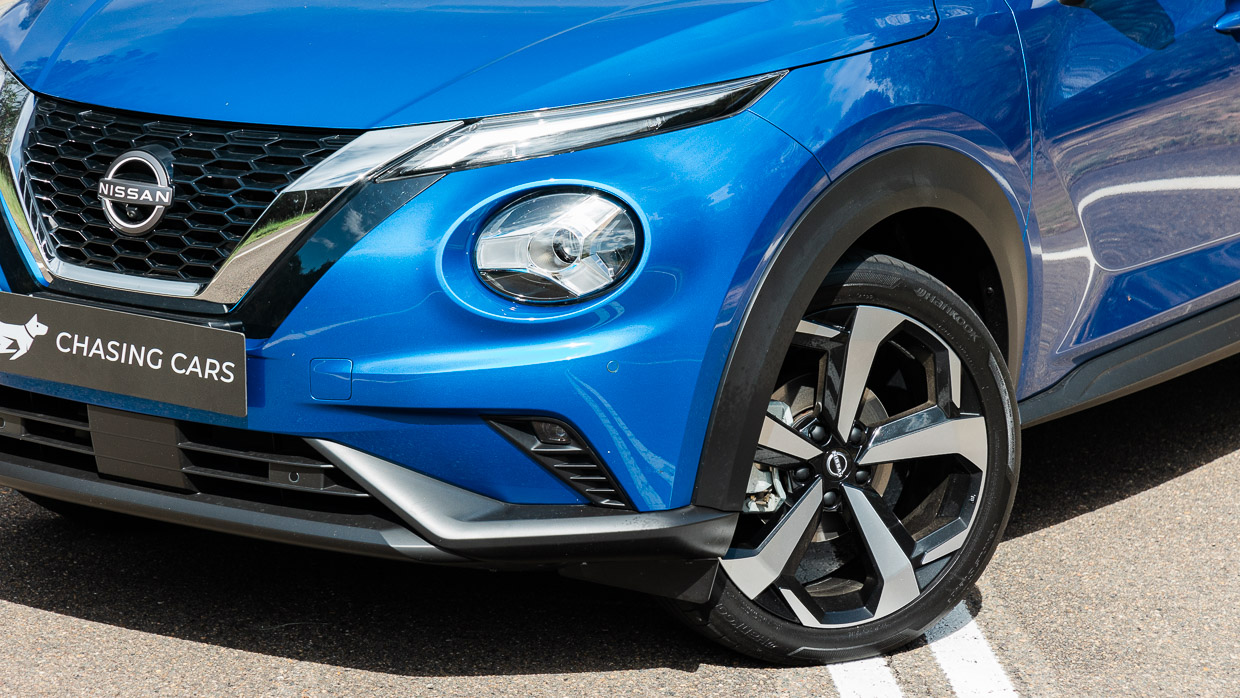
Put another way, for every one Juke delivered, Mazda delivered 12.5 CX-3s. The next best seller in the segment last year – the Kia Stonic – delivered 6983 units in total, over five times that of the Juke.
So, with its promise of funky styling, supposed ‘agility’, and French-fusion flavours, is the Nissan Juke the best kept secret in the world of small SUVs, or is there an Achilles’ heel lurking underneath? It was time to emerge from the rabbit-hole and find out.
Currently, the Nissan Juke is available in five model grades within Australia including the ST, ST+, ST-L, ST-L+, and the range-topping Ti. Today we are driving the mid-level ST-L, which comes in at $34,440 before on-road costs.
In contrast, the range opens at $28,390 for the base spec ST, jumping up to $31,140 for the ST+, before topping out at $35,540 for the ST-L+ and $36,890 for the top-spec Ti.
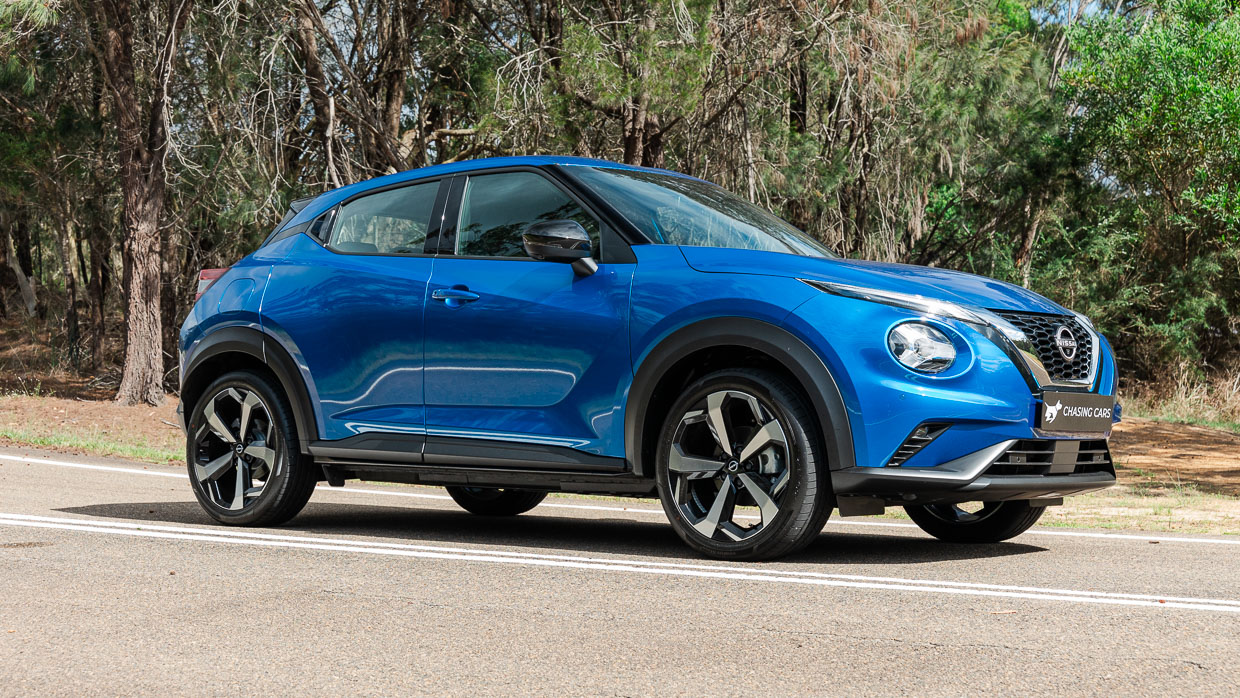
However, it’s important to note that Nissan has announced a mid-life update to the vehicle which will include an interior refresh, new colour choices and better tech, as well as a new N-Sport grade.
The updated SUV is due by the end of 2024, however updated pricing and specs are yet to be confirmed for Australia – all info below is based on the current, pre-update vehicle lineup.
Regardless of variant, all Jukes are powered by a 1.0-litre inline three-cylinder petrol turbo engine driving the front wheels and mated to a seven-speed dual-clutch automatic transmission.

Total power outputs are a modest 84kW and 180Nm for the small SUV but it does weigh in at very light 1265kg.
In terms of size, the Juke measures in at 4210mm in length, making it slightly shorter than a Mazda CX-3 (4275mm) but slightly longer than a Kia Stonic (4140mm).
The Nissan Juke is kitted out with a host of standard features. Inside you score items like:
Outside, the vehicle includes features like:
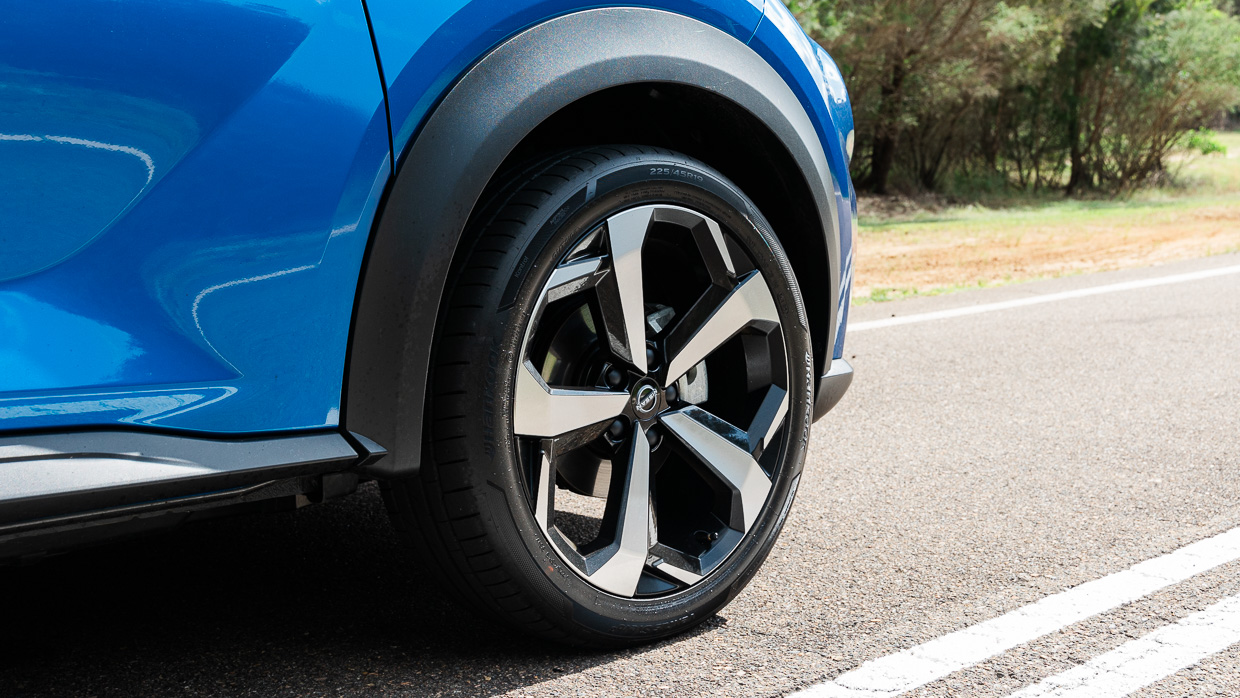
Stepping up to the ST-L grade and above unlocks the below additional features:
It was time to test out the Juke’s supposed promise of ‘dancing’ and ‘agility’ on the road, and overall there was a lot to like about the drive experience, mostly.
Firstly, the engine – the 1.0-litre turbo three-cylinder, while not the sprightliest engine in the world of compact SUVS, is punchy enough around town and has a characterful note to it too.
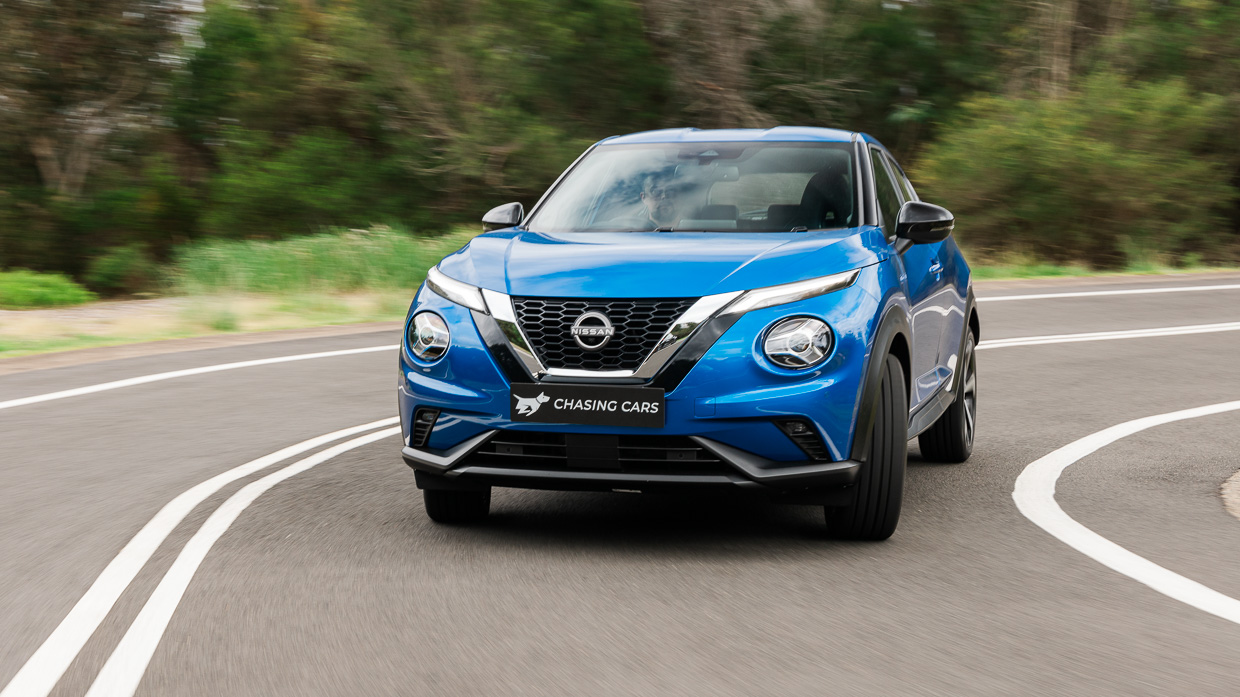
In performance testing, we recorded a 10.44 second 0-100km/h and 37.95m 100-0km/h braking performance.
However, despite the fact it isn’t the surliest engine out there, there is perhaps a little hint of sportiness to the handling – the car feels well damped and is quick and easy to punt around town or through a set of b-road corners.
While not delivering that much in feel or feedback, for an urban-focused SUV the steering is light and easy to use and place the Juke on the road accurately – I don’t think any owners will have any complaints in that regard.
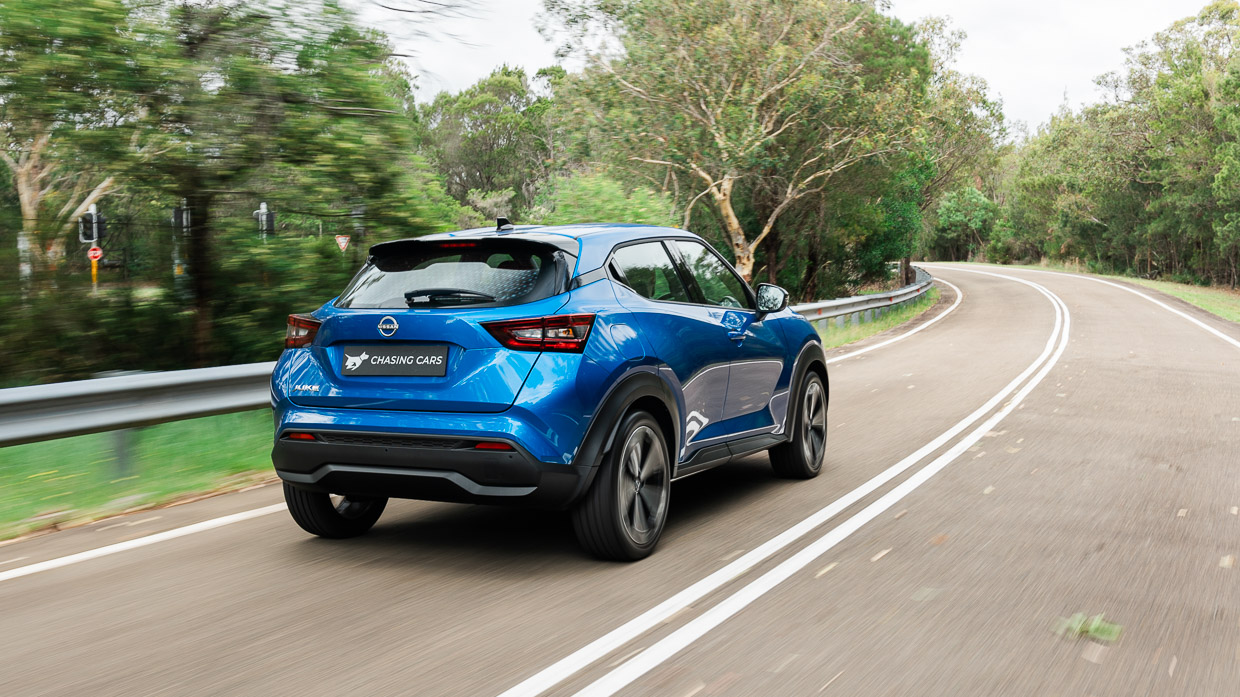
Forward visibility is also good from the driver’s seat and the compact dimensions of the vehicle add to its nimble feeling nature, however rear visibility isn’t as good due to a smaller rear window – you can thank the funky styling for that.
It’s a quiet and well-insulated cabin as well, however riding on 19-inch wheels in ST-L spec and above, you do seem to pick up most bumps and road imperfections, and particularly harsh bumps will transmit into the cabin.
That’s something to be conscious of based on your priorities though it didn’t sour the experience for me, with the Juke still delivering a good level of compliance with its overall ride.

I personally haven’t driven the lower-spec Jukes that ride on 17-inch wheels, so I’m not sure how much more noticeably compliant the ride on lower-spec models is as a result – however the launch drive review by the Chasing Cars team indicated a very supple ride quality.
If you do want to spice things up on your drive, you can flick from normal or eco mode to sport mode to give the Juke a bit more zing – slightly weightier steering, quicker shifts and a sportier engine note too.
Overall the Juke is quite competent on-road apart from one element that did niggle at me during my time with the car, and that’s its dual clutch transmission which on occasion could feel jerky, laggy, or indecisive.
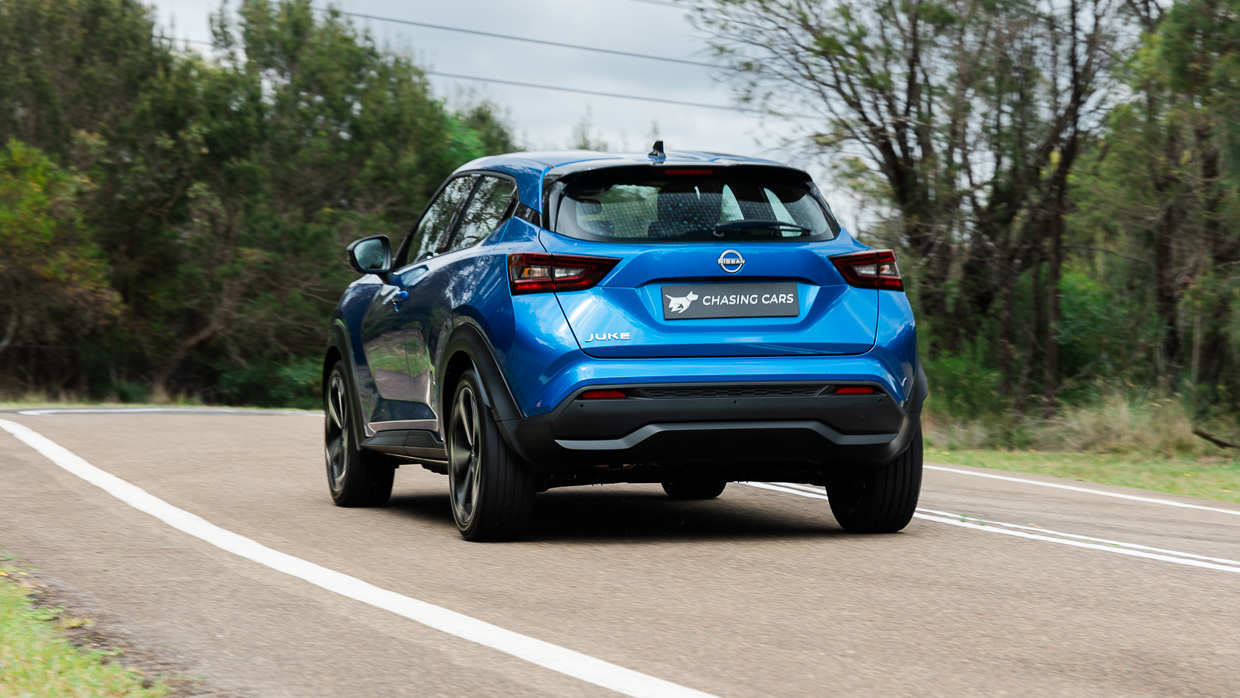
Driving the car smoothly around town this is perhaps something you can learn to modulate as you become familiar with the transmission and how it likes to work.
However, if giving the car a bit of throttle, sometimes you’ll find yourself waiting that second or two too long before anything happens and it actually shifts down a gear which doesn’t make for the smoothest drive experience.
This was most noticeable for me twice during my time with the car when doing a tricky merge from zero to 80km/h and then also turning into a 90km/h zone from stand still.
There was high, fast-moving traffic during both occasions, requiring swift progression to execute the manoeuvres safely.
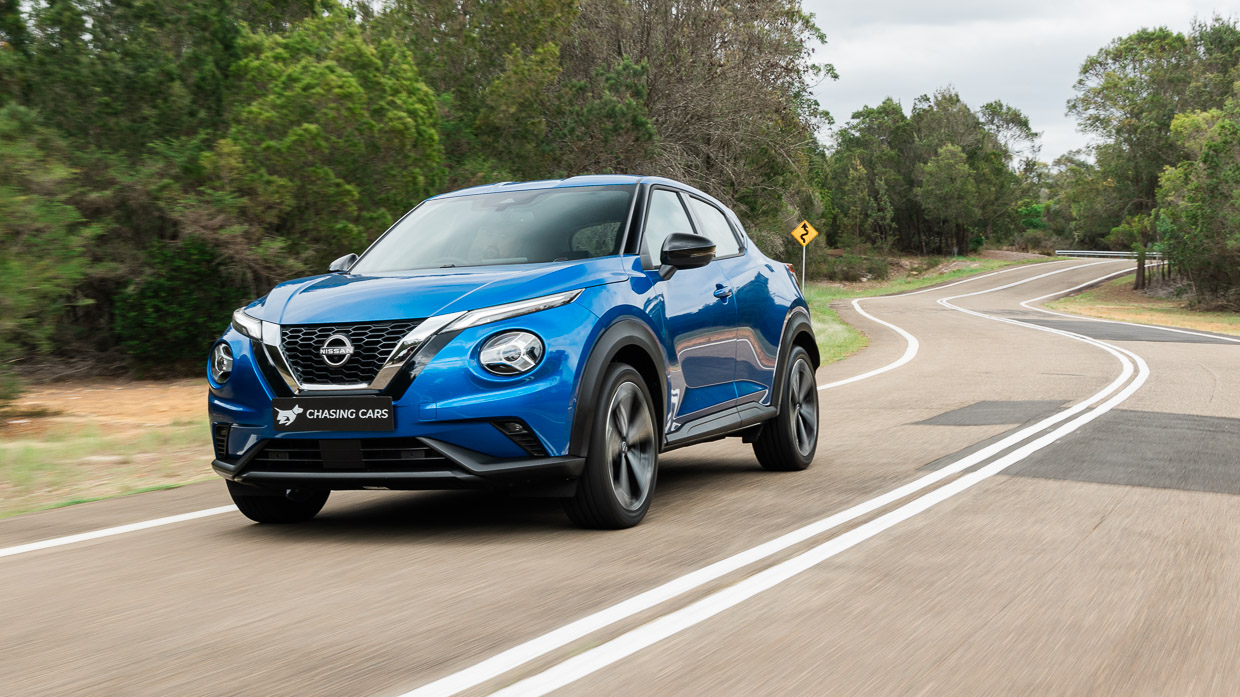
However, in both instances the Juke took a few moments uncomfortably too long to shift into the right torque band to generate the kind of progression I was seeking. This would also be a consideration if you do lots of highway driving and overtaking, with the vehicle always seeming to hunt for the highest gear ratio.
It’s a bit of a shame as a better tuned transmission would probably elevate the experience significantly from what was my biggest bug-bear with the car.
While the Nissan Juke isn’t exactly an old car, you can tell it’s not a newly released design when you hop inside. This isn’t necessarily a bad thing by any means and some may appreciate the ergonomic familiarity it offers with its traditional approach to interior design.
It still has a traditional gear lever, analogue speedometer and tachometer, and plenty of buttons to control functionalities like your climate controls – there is no overabundant reliance on screens here.
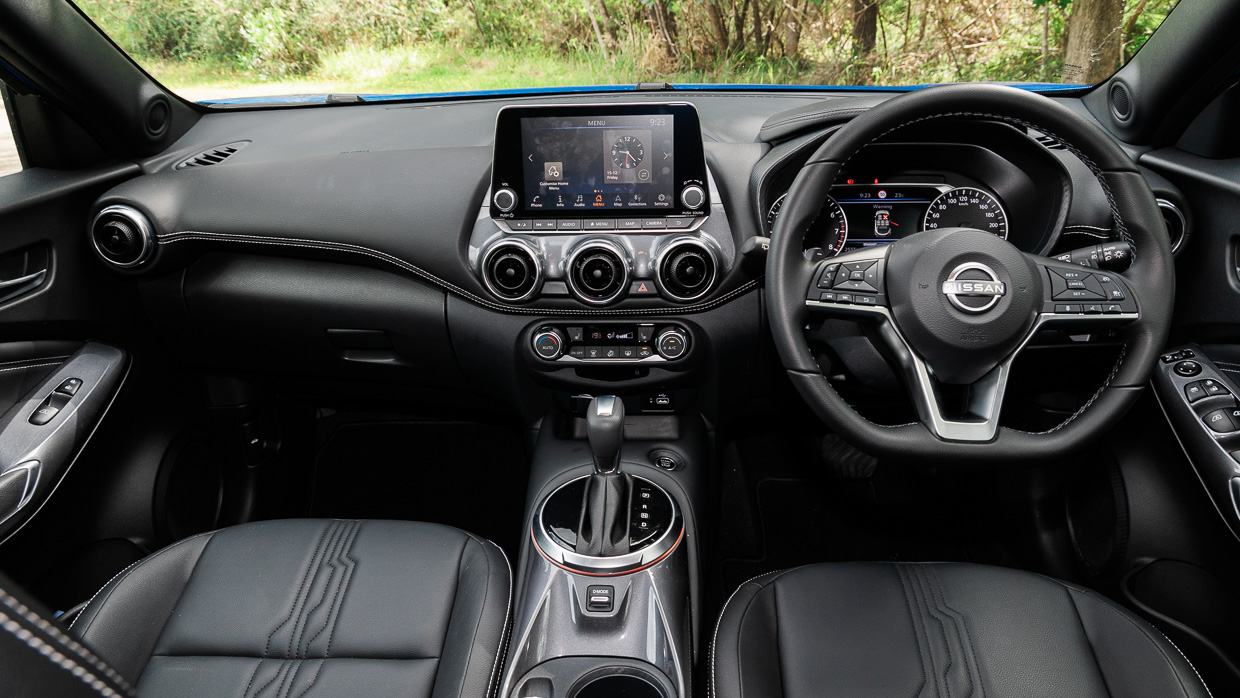
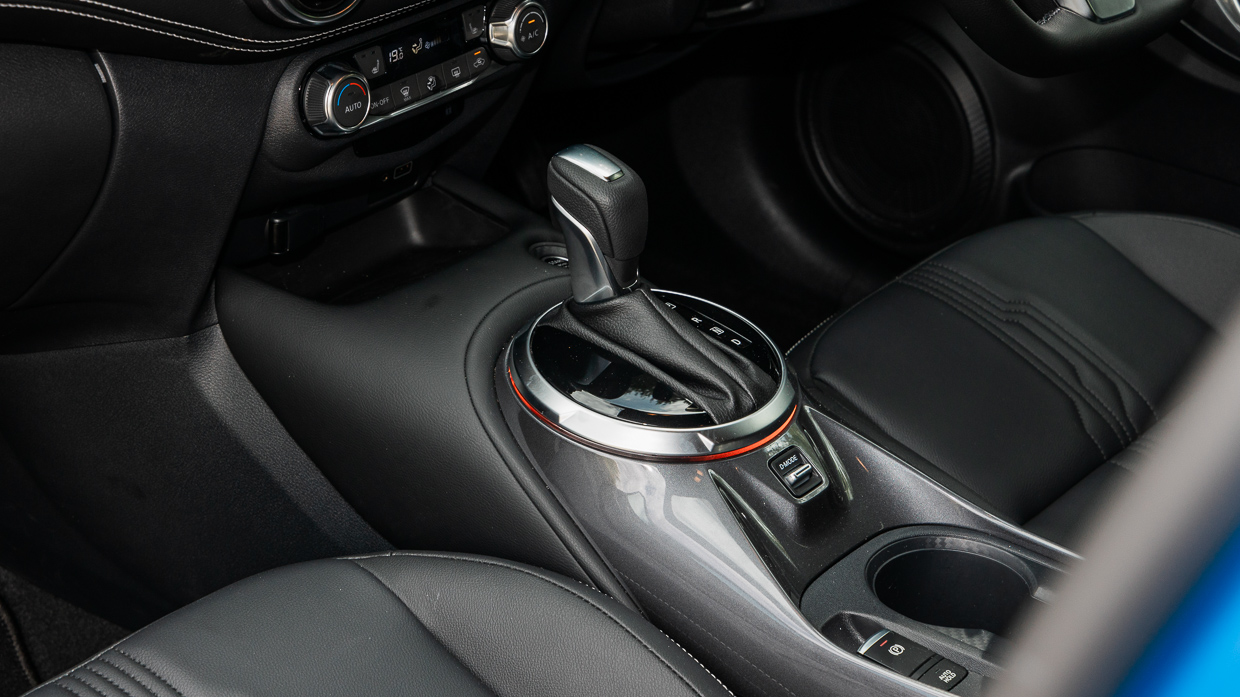
Overall, it’s a nice place to be and while it was a symphony of dark greys and blacks, there was at least some flair to the visual design with its sculpted look and circular air vents which mean it isn’t boring to look at from an aesthetic standpoint.
Furthermore, the interior feels rich and solidly well screwed together with a decent heft to the switchgear like the indicator stalks. There’s a decent amount of soft touch material too, although this is counterbalanced with some scratchy plastics in places.
There is a decent size glovebox and small centre storage box, but there isn’t much storage space around the centre console – for example, if you own a big phone you’ll struggle to find somewhere to put it. You do get two decent sized cup-holders though.
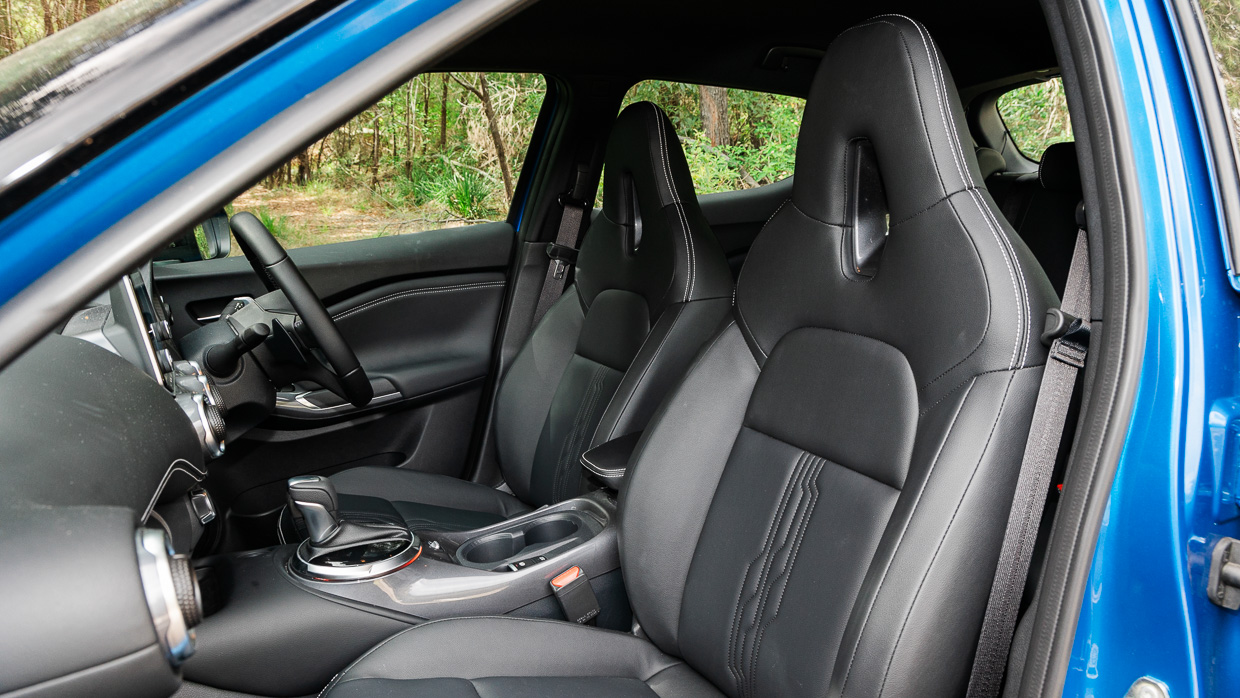

The seats are comfortable and supportive and I found it easy to find a good driving position with the six-way manual adjustable driver’s seat.
With so much black inside, not to mention the black PVC and leather accented seats in the ST-L, seat ventilation would have been a nice feature for a hot Aussie summer. On the flipside you do get heated front seats for winter.
From a tech perspective, the dated graphics featured in the media system will start to reveal the vehicles 2019 vintage, and the graphics of the 360 reverse camera are sub-par as compared with the crisp graphics you can expect on many modern cars.

Other than this the infotainment screen was easy to use and some of the physical shortcut buttons and dials around the screen – to access the menu, camera, map, toggle with the volume, skip tracks etc – are appreciated too.
You’ll need to use a wire to connect your phone and access Apple CarPlay or Android Auto, but this worked fine for me over my time with the car, utilising the USB-A port featured beneath the centre console.
Before we head to the rear – a little quirk you will also notice up front is if you want to pop the bonnet – the release is featured on the passenger side, not the driver side.
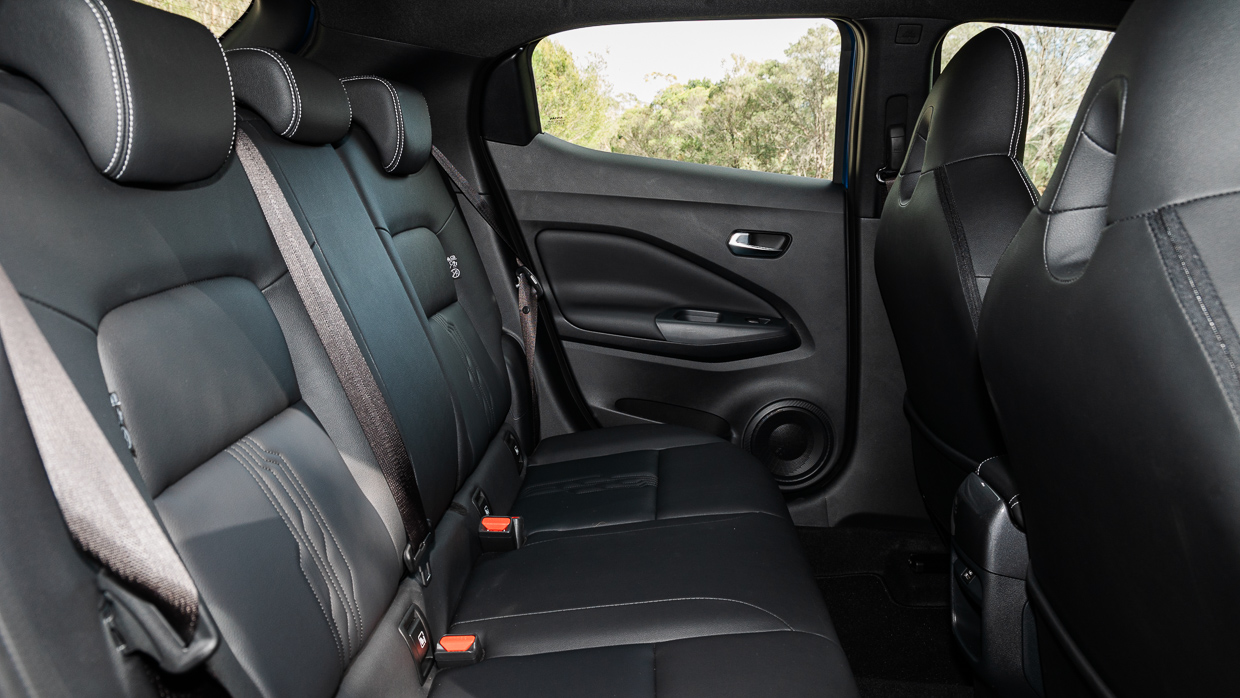
So what about the experience for rear seat passengers? I wouldn’t call it spacious, however at six-foot I had enough leg- and head-room and found the seats comfortable. This said, toe-room wasn’t the best as the layout of the floor under the front seats meant I had to angle my feet together.
Side vision isn’t the best either in the relatively cocoon-like rear and there aren’t any rear air vents, nor a centre armrest. You do get a rear USB-A port, however.
The Juke does however score extra points when it comes to its boot which has a very decent 422 litres of space with the rear seats folded up. That compares to 264 litres for the segment-leading Mazda CX-3 and 332 litres for the Kia Stonic.

Folding the rear seats down brings boot space up to 1305 litres.
While a large capacity for a small SUV, there is a high loading lip which may be a deterrent if you are lifting lots of heavy items. On the flip-side, depending on what you’re carrying, it will keep things from rolling or falling out when you open the rear tailgate.
The Nissan Juke comes equipped with the following safety features as standard:
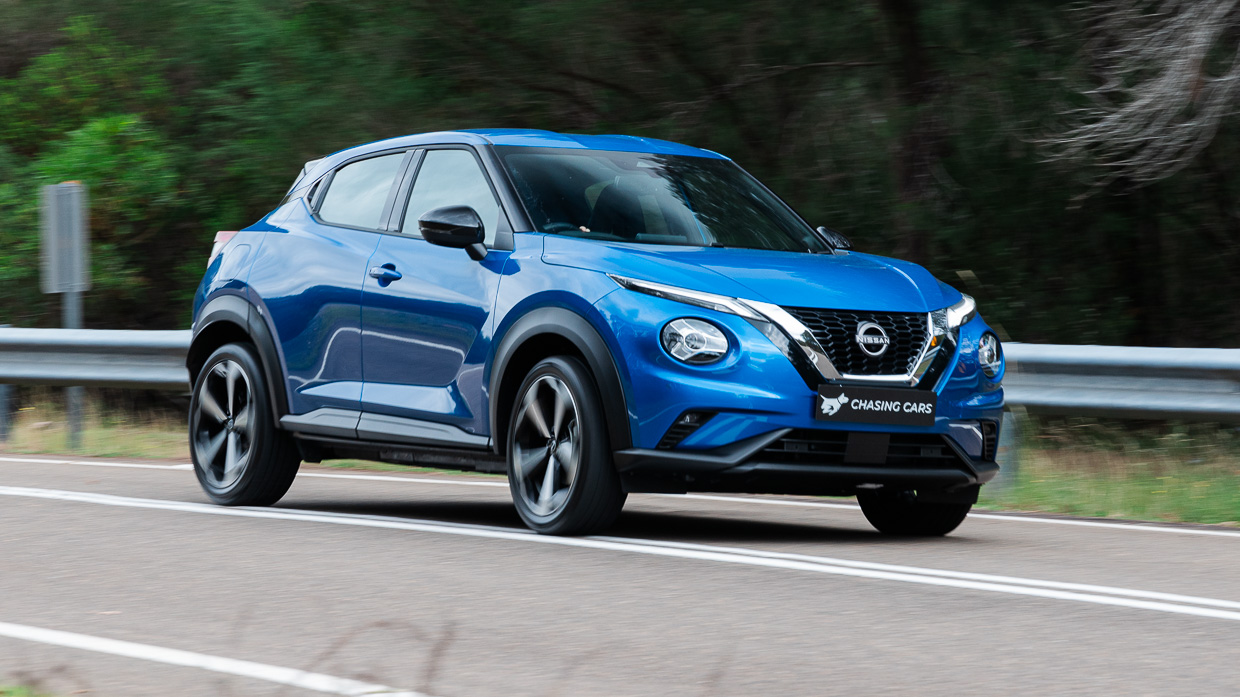
Stepping up to the ST+ gains front parking sensors, and stepping up to the ST-L gains a 360 camera with moving object detection and adaptive cruise control.
The Nissan Juke underwent crash testing in 2019 and scored a five-star ANCAP safety rating at the time, with that rating valid until December 2025.
Servicing the Nissan Juke will set you back $2375 over five years, for an average cost of $475 per service. You can save a bit of money if you go with Nissan’s pre-paid maintenance plan which brings the five-year total to $2138.
Services are due every 12 months or 20,000 kilometres, whichever comes first.

Nissan quotes a claimed fuel consumption figure of 5.8 litres per hundred kilometres for the Juke which takes a recommended 95 octane fuel. During my time with the Juke, I averaged 7.5 litres across several days which included predominantly urban driving to and from work.
The Juke is covered by Nissan’s five-year/unlimited-kilometre warranty.
So is the Nissan Juke the best kept secret in the land of small SUVS?
Well, I wouldn’t go quite so far, but it certainly does provide a characterful package that provides some flair in a segment which can sometimes be a bit dull.
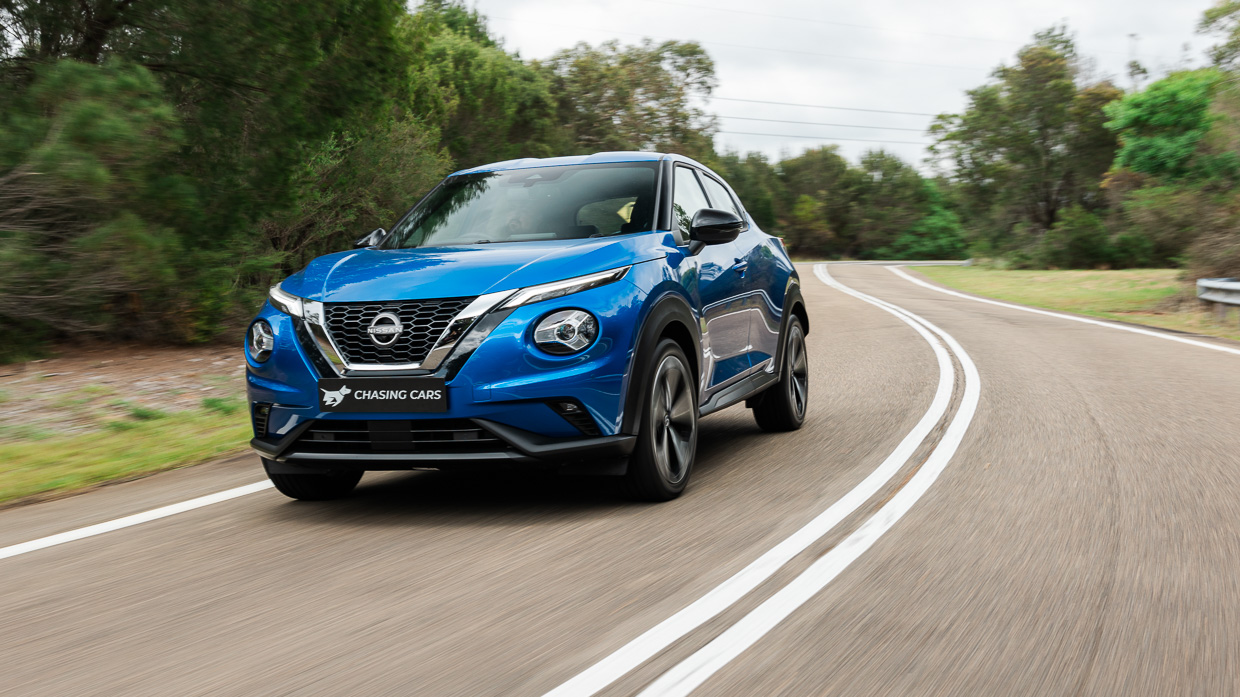
It’s a cool looker – granted, that’s subjective – is well equipped, has a decent interior, a good amount of boot space especially, and drives relatively well – aside from a transmission that’s lacking finesse with its calibration.
Perhaps that’s where the ‘duality’ of the Juke comes into play, a car which otherwise does a decent job of living up to its promise of dancing with demonstrated agility.
Key specs (as tested)
About Chasing cars
Chasing Cars reviews are 100% independent.
Because we are powered by Budget Direct Insurance, we don’t receive advertising or sales revenue from car manufacturers.
We’re truly independent – giving you Australia’s best car reviews.
The estimate provided does not take into account your personal circumstances but is intended to give a general indication of the cost of insurance, in order to obtain a complete quote, please visit www.budgetdirect.com.au. Estimate includes 15%^ online discount.
^Conditions Apply
Budget Direct Insurance arranged by Auto & General Services Pty Ltd ACN 003 617 909(AGS) AFSL 241 411, for and on behalf of the insurer, Auto & General Insurance Company Limited(ABN 42 111 586 353, AFSL 285 571).Because we don’t know your financial needs, we can’t advise you if this insurance will suit you. You should consider your needs and the Product Disclosure Statement before making a decision to buy insurance. Terms and conditions apply.
Indicative quote based on assumptions including postcode , 40 year old male with no offences, licence suspensions or claims in the last 5 years, a NCD Rating 1 and no younger drivers listed. White car, driven up to 10,000kms a year, unfinanced, with no modifications, factory options and/or non-standard accessories, private use only and garaged at night.
^Online Discounts Terms & Conditions
1. Discounts apply to the premium paid for a new Budget Direct Gold Comprehensive Car Insurance, Third Party Property Only or Third Party Property, Fire & Theft Insurance policy initiated online on or after 29 March 2017. Discounts do not apply to optional Roadside Assistance.
2. Discounts do not apply to any renewal offer of insurance.
3. Discounts only apply to the insurance portion of the premium. Discounts are applied before government charges, taxes, levies and fees, including instalment processing fees (as applicable). The full extent of discounts may therefore be impacted.
4. We reserve the right to change the offer without notice.